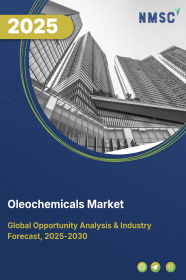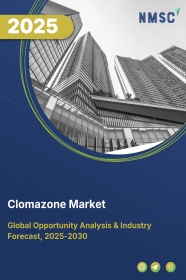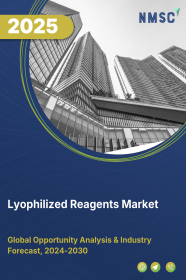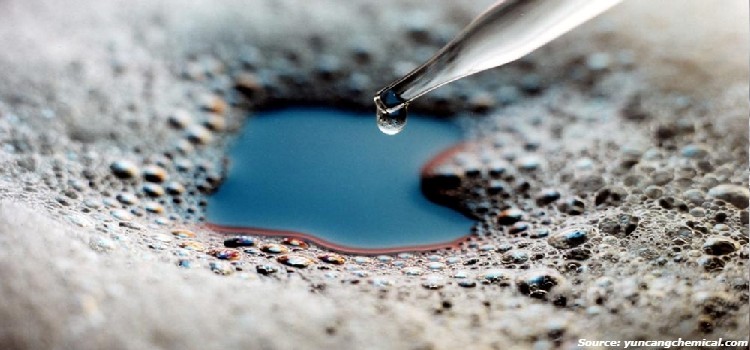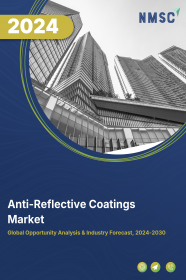
Anti-Reflective Coatings Market by Technology (Vacuum Deposition, Electronic Beam Evaporation, Sputtering, and Others), by Application (Eyewear, Electronics, Solar Panels, Automobile, and Others)- Global Opportunity Analysis and Industry Forecast, 2020 – 2030
Industry: Materials and Chemical | Publish Date: 28-Nov-2024 | No of Pages: 239 | No. of Tables: 132 | No. of Figures: 102 | Format: PDF | Report Code : MC291
Market Definition
The global Anti-Reflective Coatings Market size was valued at USD 3.78 billion in 2019; is predicted to garner USD 7.83 billion by 2030, witnessing a CAGR of 6.7% from 2020-2030.
The volumetric sale in the global anti-reflective coatings market was 449.18 kilotons in 2019, and is projected an elevation up to 853.32 kilotons, with a CAGR of 5.9%.
The anti-reflective coatings are optical coatings applied on the surface of lenses, mirrors, or other optical surfaces, to reduce reflection and increase transmission of light, hence enhancing the throughput of light by controlling the reflexive index. These di-electric coatings benefit in controlling the transmission and reflection of different spectral bands of light which are ultra-violet radiations, visible light, and near infra-red radiations. The anti-reflective coatings hold wide applications in optics & eyewear, electronic gadgets, solar panels, automotive industries, and other industry verticals.
Market Dynamics and Trends
The global anti-reflective coatings market is proliferating, owing to developments in the eyewear and photovoltaics industries as well as construction sector. Besides, environmental concerns like Global Warming, depleting conventional fuels, and increasing trends towards sustainable development. Solar panels being the most energy efficient with feasible installations, easy maintenance, and high-power output, prove to be the best alternative to conventional energy sources. The increasing installations of solar panels result in higher demand for anti-reflective coatings, that in-turn is anticipated in boosting-up the global market growth in future.
However, high manufacturing cost as well as lack of knowledge regarding proper maintenance and usage of the anti-reflective coatings is expected to hinder the growth of anti-reflective coatings industry during the forecast period.
Moreover, factors like growing application of anti-reflective coatings in screens of smartphones, televisions, laptops, and other electronic gadgets, higher adoption of solar panels in emerging economies, as well as new product launches by market players, are paving the way for lucrative opportunities in the global anti-reflective coatings market in coming future.
Market Segmentations and Scope of the Study
The global anti-reflective coatings market share analysis is based on technology, application, and geography.
Based on technology, the market is segmented into Vacuum Deposition, Electronic Beam Evaporation, Sputtering, and Others. Based on application, the market is divided into Eyewear, Electronics, Solar Panels, Automobile, and Others. Geographic breakdown and analysis of each of the previously mentioned segments include regions comprising North America, Asia-Pacific, Europe, and RoW.
Geographical Analysis
North American region held the highest market share of the global anti-reflective coatings market and is expected to follow a similar trend during the forecast period owing to increasing demand of anti-reflective coatings in eyewear applications as well as its growing application in consumer goods such as smartphones, cameras, flat panel displays and other electronic gadgets.
Asia Pacific region is expected to to grow at a notable CAGR during the forecast period, owing to factors like multiplying population, rapid urbanization, increase in disposable incomes as well as increasing government initiatives on non-conventional sources specifically on solar panels.
Competitive Landscape:
The anti-reflective coatings industry, which is highly competitive, consists of various market players. Some of the major market players include AccuCoat Inc., Dupont, COCO LENI, Evaporated Coatings Inc., EKSMA Optics, Hoya Vision Care Company, Essilor, Majestic Optical Coatings, PPG Industries Inc, Optics Balzers AG, Spectrum Direct, Honeywell International Inc., Quantum Coating, ZEISS International, Optical Coatings Japan, Torr Scientific Ltd, Optimum RX Lens Specialists, Zygo Corporation, Rodenstock GmbH, and VIAVI Solutions Inc. among others.
The past endeavors, present developments and futuristic advancements, sum-up to comprehend the overall growth of the global anti-reflective coatings market.
For instance, in March 2019, ZEISS International, an internationally leading technology enterprise operating in the fields of optics and optoelectronics, launched its advanced UV-protect technology, that claims for total UV protection i.e. up to 400nm in a clear eyeglass lens. ZEISS UV-Protect technology is made-available in all ZEISS-branded lenses.
Furthermore, in March 2020, the major player of global anti-reflective coatings market, PPG Industries Inc. announced the motorsports debut of its ballistic, canopy-like windscreen, a key component of the NTT INDYCAR SERIES, labelled as ‘Aeroscreen’. INDYCAR also known as the ‘NTT INDYCAR SERIES,’ is the Indianapolis-based governing body for the premier open-wheel auto racing series of North America. The PPG windscreen contains an interior anti-reflective coating and an anti-fogging device. The windscreen weighs 17.3 pounds and it can withstand a two-pound object striking it at more than 220 miles per hour. Besides its titanium frame weighs 27.8 pounds and can withstand 34,000 pounds of force. The Aeroscreen is a revolutionary solution for absolute driver safety. With this, PPG plays an important role in ensuring cockpit protection for drivers throughout the NTT INDYCAR SERIES season.
Key Benefits
-
The anti-reflective coatings market report provides a quantitative analysis of the current market and estimations through 2020-2030 that assists in identifying the prevailing market opportunities to capitalize on.
-
The study comprises a deep dive analysis of the global market trend including current and future trends for depicting the prevalent investment pockets in the market.
-
The report provides detailed information related to key drivers, restraints, opportunities, and their impact on the market.
-
The report incorporates competitive analysis of the market players along with their market share in the global market.
-
The study elaborates SWOT analysis of the market and Porters Five Forces model.
-
Value chain analysis in the global anti-reflective coatings market trend study provides a clear picture of the stakeholders’ roles.
Anti-Reflective Coatings Market Key Segments
By Technology
-
Vacuum Deposition
-
Electronic Beam Evaporation
-
Sputtering
-
Others
By Application
-
Eyewear
-
Electronics
-
Solar Panels
-
Automobile
-
Others
By Geography
-
North America
-
U.S.
-
Canada
-
Mexico
-
-
Europe
-
UK
-
Italy
-
Germany
-
Spain
-
Netherlands
-
Rest of Europe
-
-
Asia-Pacific
-
China
-
Japan
-
India
-
Australia
-
South Korea
-
Taiwan
-
Vietnam
-
Rest of Asia Pacific
-
-
RoW
-
Latin America
-
Middle East
-
Africa
-
Key Players
-
AccuCoat Inc.
-
Dupont
-
COCO LENI
-
Evaporated Coatings Inc.
-
EKSMA Optics
-
Hoya Vision Care Company
-
Essilor
-
Majestic Optical Coatings
-
PPG Industries Inc
-
Optics Balzers AG
-
Spectrum Direct
-
Honeywell International Inc.
-
Quantum Coating
-
ZEISS International
-
Optical Coatings Japan
-
Torr Scientific Ltd
-
Optimum RX Lens Specialists
-
Zygo Corporation
-
Rodenstock GmbH
-
VIAVI Solutions Inc.
Report Scope and Segmentation
|
Parameters |
Details |
|
Analysis Period |
2019–2030 |
|
Base Year Considered |
2020 |
|
Forecast Period |
2020–2030 |
|
Market Size Estimation |
Billion (USD) |
|
Market Segmentation |
By Technology (Vaccum Deposition, Electronic Beam Evaporation, Sputtering, Other Technology) By Application (Eyewear, Electronics, Solar Panels, Automobile, Other Application) |
|
Geographical Segmentation |
North America (U.S., Canada, Mexico) Europe (UK, Italy, Germany, Spain, Netherlands, Rest of Europe) Asia-Pacific (China, Japan, India, Australia, South Korea, Taiwan, Vietnam, Rest of Asia Pacific) RoW (Latin America, Middle East, Africa) |
|
Companies Profiled |
AccuCoat Inc., Dupont, COCO LENI, Evaporated Coatings Inc., EKSMA Optics, Hoya Vision Care Company, Essilor, Majestic Optical Coatings, PPG Industries Inc, Optics Balzers AG, Spectrum Direct, Honeywell International Inc., Quantum Coating, ZEISS International, Optical Coatings Japan, Torr Scientific Ltd, Optimum RX Lens Specialists, Zygo Corporation, Rodenstock GmbH, and VIAVI Solutions Inc. |

















 Speak to Our Analyst
Speak to Our Analyst



